- europages
- >
- COMPANIES - SUPPLIERS - SERVICE PROVIDERS
- >
- flowering plants
Results for
Flowering plants - Import export

BAYCELIK TARIM ÜRÜNLERI
Turkey
Sunflower seeds are the fruit of the sunflower, a large flowering plant belonging to the daisy family. Sunflower seeds are one of the most consumed nuts in our country, which has a great production potential. Sunflower seeds, which help treat many diseases in regular consumption, also appeal to all tastes with options such as salted and roasted. You can contact our company for nutritious sunflower seeds and wholesale sunflower seeds.
Request for a quote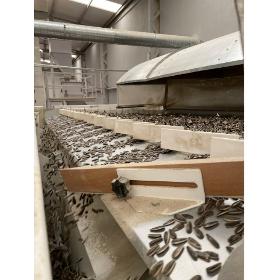
BAYCELIK TARIM ÜRÜNLERI
Turkey
This plant is a large flowering plant belonging to the daisy family, which produces one crop a year. The stems of the plant grow up to 3 meters long and the flower grows up to 30 centimeters in diameter. This plant can grow in any region with limited irrigation facilities. There are also seventy species of this genus. Due to its high oil content, it is widely used in oil production. They are sold as lightly roasted, salted, unsalted, sauced and peppered. There are also bakery products made with sunflower seeds. According to the nutritional values, carbohydrate, 18.76 g, sugar, 2.62 g, fat, 49.57 g, protein, 22.78 g, vitamin E (230%) 34.50 mg, calcium (12%) 116 mg. Sunflower seeds are one of the small and delicious snack foods. In addition, it is a very valuable food for human health. Especially the various vitamins and fibers in sunflower seeds complement the body's deficiencies necessary for health.
Request for a quote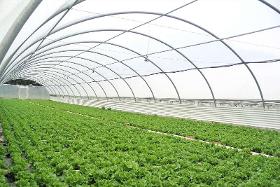
MINE COLOURS
Turkey
Ultraviolet Masterbatch Anti-Slip Masterbatch Optic Bright Masterbatch Masterbatch Application: Mine Colours can provide colour and additive masterbatch options for agriculture industry. Greenhouses requires ultraviolet resistant plastic additives as well as optic bright masterbatches for the longevity of the greenhouse. Thank to our vast experience from working closely with Turkey’s leading greenhouse manufacturers, we can provide necessary plastic additives and colours for agriculture industry.
Request for a quote
VILMARK GIDA ITH. IHR. INS. TIC. LTD. STI.
Turkey
Lemon is a small evergreen tree in the family Rutaceae, a flowering plant native primarily to Northeast India, South Asia. The ellipsoidal yellow fruit of the tree is used worldwide for culinary and non-culinary purposes, especially for juice, which has both culinary and cleaning uses. Its pulp and peel are also used in cooking and baking. The juice of the lemon is about 5% to 6% citric acid and has a pH of 2.2 and therefore has a sour taste. Grown in gardens in warm and temperate climates, 3–5 meters tall, evergreen in summer and winter, blooming with fragrant white flowers, lemon contains vitamins such as vitamin C, vitamin B6, vitamin A, vitamin E, folate, niacin, thiamin, riboflavin, pantothenic acid.
Request for a quote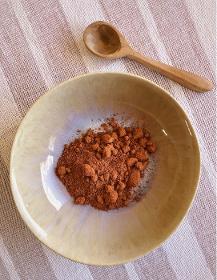
THEMAZI
Turkey
Its homeland is the Mediterranean region. It is also grown a lot in the Western and Central Anatolian regions. The paint prepared with Alizarin and Parparin materials obtained from the roots of the species is known in the world as Turkish red, Rubia Tinctorum. It is known to be the first plant used in yarn dyeing. Now you can buy madder from Turkey directly. It is a plant that grows on perennial and fertile soil with rhizostome 1 to 2 meters tall. The plant, which grows in the summer, has pale yellow flowers. In winter, the flowers of the plant are poured, but in spring they reopen. Its leaves are 4 to 6 pieces, circular from the same knuckle. The most likely homeland of foot boat is Anatolia. But it seems to have spread naturally to the Caucasus, Iran, Central West Asia, and the Himalayas. The most important dye plant for red color, the root boot has been cultivated for centuries.
Request for a quoteDo you sell or make similar products?
Sign up to europages and have your products listed
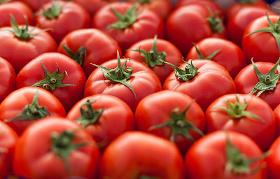
CENGIZ FRUITS
Turkey
Green leafy fruit is usually red. In the growing stage, the fruit becomes green in the first place, then yellow and finally red. This fruit is known to have hundreds of species; red, purple, brown, yellow and green. Tomato fruit has an average height of 10-15 cm. Tomato which is a hairy leafy plant gives flowers consisting of 1-2 cm fruits on average. The length of the plant can reach up to 150 centimeters. Tomato fruit is known to be a vitamin store. It is especially rich in vitamin A. It is a substance called lycopene which gives tomato its red color. Lycopene is one of the most effective antioxidants.
Request for a quote
NEZIROGULLARI ORGANIK GUBRE
Turkey
We are a manufacturer company in Turkey. We are a Ministry licensed direct manufacturer. BENEFITS OF HUMIC & FULVIC ACID ** Increases nutrient intake. ** Increases frost resistance. ** It prevents soil erosion. ** By solving the hardening in the soil, it enables the plant to root more easily, encourages root growth and provides aeration of the soil. ** It regulates and facilitates the movement of water and air in the soil. ** It removes the excess sodium (Na) in the soil and removes the aridity. It regulates the pH by dissolving lime in the soil. ** By increasing the ion exchange in the soil, it frees the phosphorus, calcium and trace elements of clay minerals and enables them to be used by plants. ** It makes the existing nutrients in the soil chelated and facilitates their absorption by plants. ** Increases microorganism activities in the soil. ** Increases the flower setting rate of the plant. ** Extends the shelf life of the product.
Request for a quote
NEZIROGULLARI ORGANIK GUBRE
Turkey
BENEFITS OF HUMIC & FULVIC ACID ** Increases nutrient intake. ** Increases frost resistance. ** It prevents soil erosion. ** By solving the hardening in the soil, it enables the plant to root more easily, encourages root growth and provides aeration of the soil. ** It regulates and facilitates the movement of water and air in the soil. ** It removes the excess sodium (Na) in the soil and removes the aridity. It regulates the pH by dissolving lime in the soil. ** By increasing the ion exchange in the soil, it frees the phosphorus, calcium and trace elements of clay minerals and enables them to be used by plants. ** It makes the existing nutrients in the soil chelated and facilitates their absorption by plants. ** Increases microorganism activities in the soil. ** Increases the flower setting rate of the plant. ** Extends the shelf life of the product. ** Increases the sugar content of fruits and vegetables. ** It enables the seed to germinate in a short time.
Request for a quote
NEZIROGULLARI ORGANIK GUBRE
Turkey
BENEFITS OF HUMIC & FULVIC ACID ** Increases nutrient intake. ** Increases frost resistance. ** It prevents soil erosion. ** By solving the hardening in the soil, it enables the plant to root more easily, encourages root growth and provides aeration of the soil. ** It regulates and facilitates the movement of water and air in the soil. ** It removes the excess sodium (Na) in the soil and removes the aridity. It regulates the pH by dissolving lime in the soil. ** By increasing the ion exchange in the soil, it frees the phosphorus, calcium and trace elements of clay minerals and enables them to be used by plants. ** It makes the existing nutrients in the soil chelated and facilitates their absorption by plants. ** Increases microorganism activities in the soil. ** Increases the flower setting rate of the plant. ** Extends the shelf life of the product. ** Increases the sugar content of fruits and vegetables. ** It enables the seed to germinate in a short time.
Request for a quote
NEZIROGULLARI ORGANIK GUBRE
Turkey
BENEFITS OF HUMIC & FULVIC ACID ** Increases nutrient intake. ** Increases frost resistance. ** It prevents soil erosion. ** By solving the hardening in the soil, it enables the plant to root more easily, encourages root growth and provides aeration of the soil. ** It regulates and facilitates the movement of water and air in the soil. ** It removes the excess sodium (Na) in the soil and removes the aridity. It regulates the pH by dissolving lime in the soil. ** By increasing the ion exchange in the soil, it frees the phosphorus, calcium and trace elements of clay minerals and enables them to be used by plants. ** It makes the existing nutrients in the soil chelated and facilitates their absorption by plants. ** Increases microorganism activities in the soil. ** Increases the flower setting rate of the plant. ** Extends the shelf life of the product. ** Increases the sugar content of fruits and vegetables. ** It enables the seed to germinate in a short time.
Request for a quote
NEZIROGULLARI ORGANIK GUBRE
Turkey
BENEFITS OF HUMIC & FULVIC ACID ** Increases nutrient intake. ** Increases frost resistance. ** It prevents soil erosion. ** By solving the hardening in the soil, it enables the plant to root more easily, encourages root growth and provides aeration of the soil. ** It regulates and facilitates the movement of water and air in the soil. ** It removes the excess sodium (Na) in the soil and removes the aridity. It regulates the pH by dissolving lime in the soil. ** By increasing the ion exchange in the soil, it frees the phosphorus, calcium and trace elements of clay minerals and enables them to be used by plants. ** It makes the existing nutrients in the soil chelated and facilitates their absorption by plants. ** Increases microorganism activities in the soil. ** Increases the flower setting rate of the plant. ** Extends the shelf life of the product. ** Increases the sugar content of fruits and vegetables. ** It enables the seed to germinate in a short time.
Request for a quote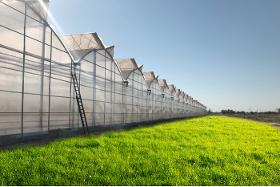
BHK GREENHOUSE SYSTEMS
Turkey
With its expert engineer staff, it provides services to new investors on professional greenhouse systems from the project stage to the turnkey delivery. In our factory, which has a production area of 5,000 square meters and a sales center, we carry out our productions with our technological machinery and equipment in order to bring quality together with our investors.
Request for a quoteResults for
Flowering plants - Import exportNumber of results
15 ProductsCountries
Company type
Category

